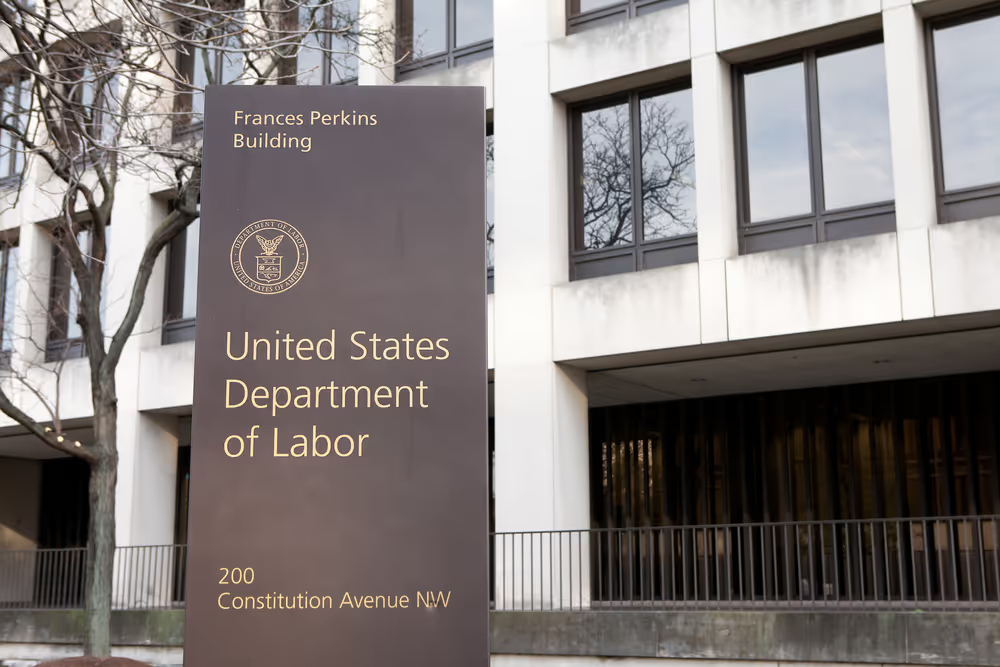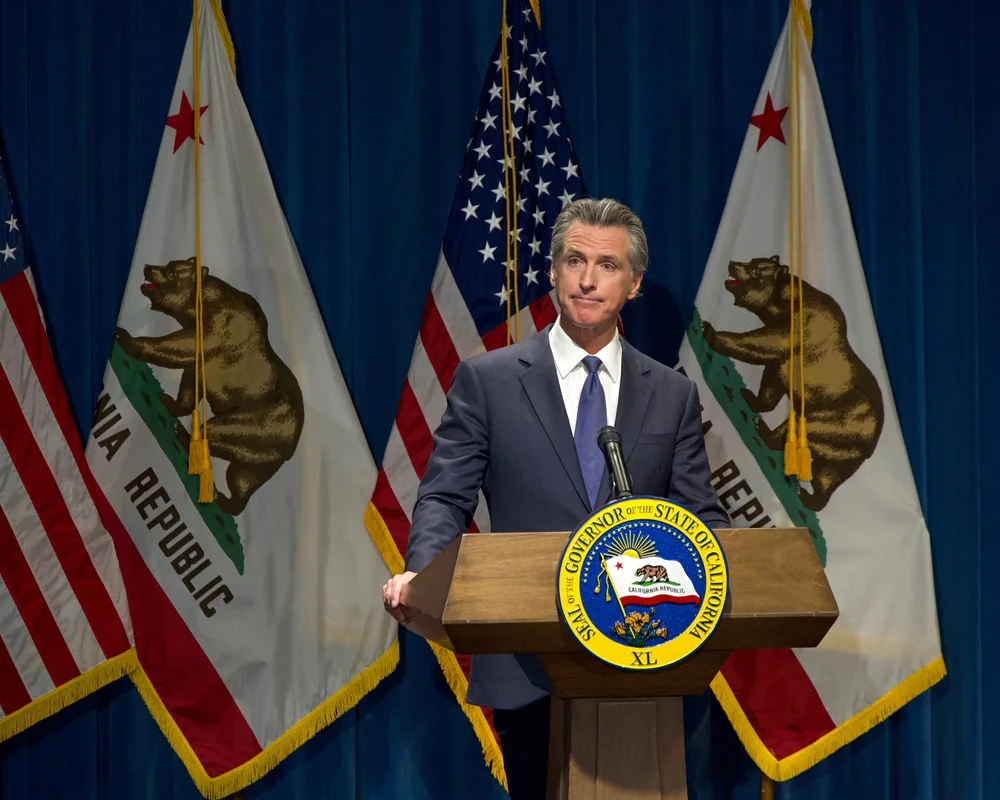
Trump’s Department of Labor Needs a Pro Growth Leader
A pro-worker Republican Party should emphasize employee choice and a competitive economy unhindered by excessive regulation.
President Trump’s nomination of pro-union back-bencher Rep. Lori Chavez-DeRemer as his Secretary of Labor, a pick celebrated by far-left teachers’ union head Randi Weingarten, was a big disappointment to voters who want a pro-growth economy. Chavez-DeRemer was one of only three Republicans in Congress who co-sponsored the radical PRO Act of 2023 legislation. This would have gutted the longstanding federal framework regulating unionization and collective bargaining, tilting the playing field decisively in favor of unions. (Fortunately, the PRO Act did not pass.)
Chavez-DeRemer’s primary “qualification” to be Labor Secretary seems to be the support of Teamsters president Sean O’Brien, who spoke at the Republican National Convention. The Teamsters did not endorse President Trump but—unlike some other unions, which backed Biden-—remained neutral in the presidential election. The nomination of Chavez-DeRemer may have been intended as a political bone to organized labor, but GOP Senators should carefully scrutinize her thin record before confirming her to helm the consequential Department of Labor.
Chavez-DeRemer’s support of the PRO Act demonstrates contempt for rank-and-file workers. That, and her complete lack of relevant experience, should be disqualifying.
Chavez-DeRemer is without question the least qualified of Trump’s cabinet nominees. As a one-term member of Congress from Oregon representing a district that extends from Portland to Bend, she was defeated in her bid for re-election by Democrat Janelle Bynum on November 5. Before her election to Congress in 2022, she served on the city council and was mayor of a small town in Oregon.
Unlike Trump’s outstanding first-term Labor Secretary, Eugene Scalia (son of the legendary Supreme Court Justice), Chavez-DeRemer has no experience in labor and employment law. Her resume consists of being the daughter of a Teamsters member. For this reason alone, the Senate should refuse to confirm her. She is utterly unqualified.
The U.S. Department of Labor is a vast bureaucracy with a budget of almost $14 billion and nearly 16,000 employees. The DOL is responsible for enforcing complex federal laws dealing with payment of overtime and the minimum wage, child labor, family and medical leave, occupational safety and health, mine safety, pension benefits, job protections for federal contractors, veterans’ rights, plant shutdowns, and many other areas. It is absurd to put an inexperienced neophyte in charge of a vital cabinet department demanding specialized expertise.
As Secretary of Labor, Chavez-DeRemer could exercise considerable discretion in applying federal laws under DOL’s jurisdiction. Left to her own devices, Chavez-DeRemer would likely run DOL as if Joe Biden had won a second term. Fortunately, the National Labor Relations Board, which plays the primary role in overseeing labor-management relations, is not under the authority of DOL.
PRO Act Summary
The business community is understandably alarmed at Chavez-DeRemer’s nomination in light of her co-sponsorship of H.R.20, the Richard L. Trumka Protecting the Right to Organize Act of 2023 (the “PRO Act” for short). The bill was named after the late head of the United Mine Workers and, later, the AFL-CIO. The PRO Act represents a wish list of special privileges for labor unions, designed to offset unions’ declining market share of the private-sector workforce (public employee unions are booming) and inability to win secret-ballot representation elections. Labor unions represent a minuscule (and declining) percentage of private-sector employees, who increasingly reject union representation because of the high dues, rampant corruption, and left-wing politics of Big Labor.
American workers are not dumb. They recognize what I described as “the growing obsolescence of the New Deal’s collective-bargaining model in an era of an educated, largely mobile, white-collar workforce that enjoys significant protections by state and federal laws—without having to pay union dues.” Rent-seeking factions such as labor unions often seek government-enforced “solutions” when they experience failure in the marketplace, and the PRO Act is no exception. Opponents of the PRO Act tend to focus on the bill’s abolition of state right-to-work laws a feature of federal law since the 1947 Taft-Hartley Act--that allow states to forbid union security agreements that require employees to pay union dues (or equivalent fees) as a condition of employment. Currently, 26 states have enacted right-to-work laws (including Texas), and ten have even enshrined the concept in their state constitutions.
This aspect of the PRO Act alone would constitute a radical (and imprudent) change in federal law, but the PRO Act contains numerous other “goodies” that benefit union bosses without improving the status of blue-collar workers. For example, the PRO Act would dramatically alter the rules for conducting union representation elections by, among other things, prohibiting employers from participating in (i.e., opposing) union elections in the workplace.
Other provisions in the PRO Act would drastically narrow the definition of “independent contractor,” bringing many jobs (including long-haul truck drivers) within reach of union organizers; codify various short-lived Obama-era innovations, such as “joint employer” rules that would lump together legally-distinct entities such as franchisors and franchisees; prohibit arbitration agreements, exposing employers to class-action lawsuits; prevent employers from permanently replacing striking workers; allow unions to engage in secondary boycotts; replace secret-ballot elections with easily-coerced authorization cards; and a host of other provisions that dramatically alter the architecture of federal labor law put in place by the 1935 Wagner Act.
The PRO Act has been condemned by the U.S. Chamber of Commerce, which calls it “a litany of almost every failed idea from the past 30 years of labor policy. The PRO Act would undermine worker rights, ensnare employers in unrelated labor disputes, disrupt the economy, and force individual Americans to pay union dues regardless of their wishes.”
The PRO Act is genuinely an extremist measure that would transform labor law beyond recognition. Support of this extraordinarily one-sided legislation demonstrates fealty to union bosses, unsuitable for a Republican administration. Chavez-DeRemer’s support of the PRO Act was not a fluke. She also co-sponsored the Public Service Freedom to Negotiate Act of 2024, which would bring public-sector unionization—now governed solely by state law—under the federal government's authority. This undoubtedly influenced the National Education Association’s ecstatic reaction to Chavez-DeRemer’s nomination.
Unions Are Not Pro-Worker
Being pro-union is not the same as being pro-worker. Labor unions generally do not serve the interests of the working class. On the contrary, workers benefit from a strong economy, low inflation, merit-based opportunity, and American competitiveness. Unions can temporarily distort wages within industries, but in the long run,, unionized businesses end up like the Detroit automakers—with shrinking profits, declining market share, and, in some cases, bankruptcy. This does not benefit American workers. There are aspects of President-elect Trump’s agenda that will aid workers. If America’s employers were denied access to illegal alien labor, the market-clearing wage rate for even unskilled jobs would increase. Employers would have to pay more—possibly substantially more—than the minimum wage to attract employees across the board. Without millions of illegal aliens in the labor force, willing to work for substandard wages, citizens willing to work would earn higher wages—without a union.
Trump’s vow to Make America Great Again for workers does not require membership in corrupt unions (such as the UAW) and the obligation to pay onerous union dues. American workers would benefit from the repeal of the electric vehicle mandates (and tax credits) that are destroying the U.S. auto industry, closing the southern border, mandating E-Verify for employers nationwide to ensure applicants’ eligibility to work in the U.S., forbidding DEI and other forms of racial preferences, ensuring fair trade with global partners, and controlling inflation by reducing the federal deficit. The goal of Trump’s labor policy should be to restore upward mobility in the form of a booming economy.
A pro-worker Republican Party should emphasize employee choice and a competitive economy unhindered by excessive regulation.
Chavez-DeRemer’s nomination represents a 180-degree change in direction from Trump’s first-term DOL leadership and policies, which contributed to the robust economy and low unemployment that prompted many voters to return him to the White House. Inexplicably, Trump’s nomination of Chavez-DeRemer signals a retreat from the economic record that he successfully ran on. The Senate should exercise its “advice and consent” carefully and confirm this dubious nominee only if it concludes that Chavez-DeRemer will be closely tethered to the President’s America First—not a Union First—agenda. Voters elected Donald Trump on November 5, not Richard Trumka, Sean O’Brien, or Randi Weingarten.
Mark Pulliam is a 1980 graduate of the University of Texas School of Law. A Big Law veteran, he retired as a partner in a large law firm after practicing for 30 years. He is a regular contributor to Law & Liberty. Mark also blogs at Misrule of Law.
Economic Dynamism

Unlocking Public Value: A Proposal for AI Opportunity Zones
Governments often regulate AI’s risks without measuring its rewards—AI Opportunity Zones would flip the script by granting public institutions open access to advanced systems in exchange for transparent, real-world testing that proves their value on society’s toughest challenges.

The Causal Effect of News on Inflation Expectations
This paper studies the response of household inflation expectations to television news coverage of inflation.

Downtowns are dying, but we know how to save them
Even those who yearn to visit or live in a walkable, dense neighborhood are not going to flock to a place surrounded by a grim urban dystopia.

The Housing Crisis
Soaring housing costs are driving young people towards socialism—only dispersed development and expanded property ownership can preserve liberal democracy.

The Economic and Constitutional Vices of California’s “Once-only” Wealth Tax
California's proposal to tax billionaires seems at first menacing, but could have drastic negative consequences for the future of the state.
.webp)
California’s Proposed Billionaire Tax and Its Portents for Normal People
The deeper significance of California's billionaire tax is in how it redefines what it means to own property in the United States.


.avif)

.jpeg)




.jpg)





